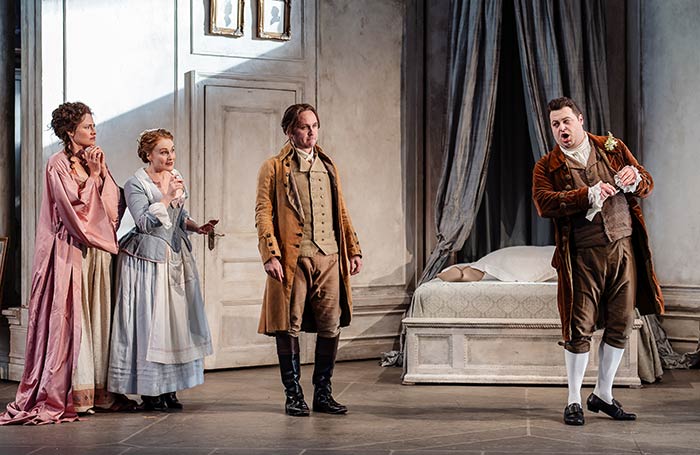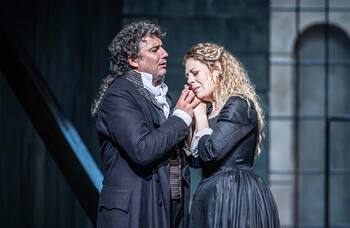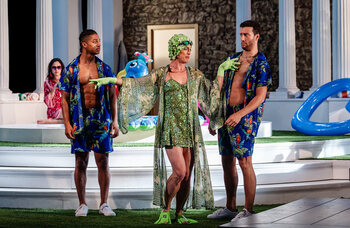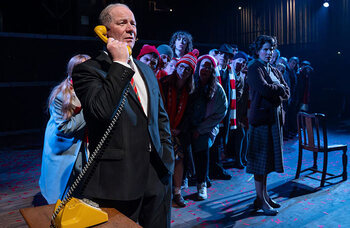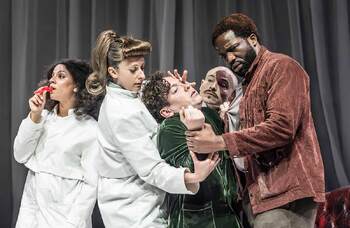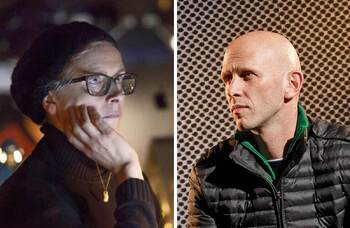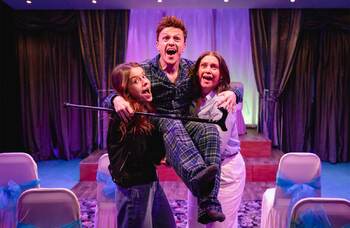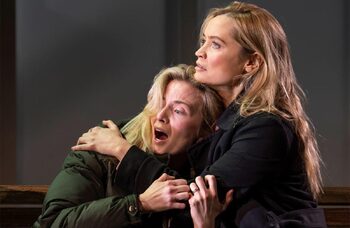Le Nozze di Figaro review
Dependable production lacks comic fizz
John Cox’s 2005 production of Mozart’s comic caper was revived for Garsington Opera’s final season in 2010 at its original home, the 17th-century Oxfordshire manor owned by financier Leonard Ingrams, and is now receiving its second airing in Mark Getty’s estate, where the festival transferred in 2011.
With period 18th-century set and costume designs by Robert Perdziola, the setting of Count Almaviva’s estate near Seville is easy on the eye, its nested, modular, reversible layout affording us a simultaneous glimpse into Figaro and Susanna’s quarters, the Countess’s chamber and the Count’s study, hung with portraits of his noble ancestors, painted witnesses to his manoeuvring and philandering. At the rear is a verdant backdrop, hinting at how the Act IV garden scene will merge seamlessly with the greenery surrounding Garsington’s clear-walled Opera Pavilion.
The singing is mostly impressive, especially that of Claire Lees, whose bright-toned Susanna reflects the character’s youthful brilliance. She is playful in Venite, Inginocchiatevi as she dresses the page Cherubino in girls’ clothes for a planned deception of the Count; and she is fresh and enchanting as she sings Deh Vieni amid the crepuscular beauty of the final-act garden scene. Against this, David Ireland manages to achieve a dramatic presence, if not a dominance, as Figaro. He sings with animation, instilling his revenge aria Se Vuol Ballare with an alluring undercurrent of insidiousness rather than taking the balder route of straight anger.
Carrying the opera’s elements of loss and tragedy, the Countess is sung by Australian/British soprano Samantha Clarke, a model of aristocratic comportment and lonely stoicism, although a tightness in her vibrato can impede the vocal line, as in the lament Dove Sono. Rafael Fingerlos is a smooth-toned Count, confident in his elevated position and (whether misplaced or not) his ability to attract women.
Continues...
What seems underplayed under revival director Bruno Ravella is the breathless spirit of comic quick-wittedness and the ratcheting up of jeopardy prompted by quickly shifting events. The trouser role of Cherubino – incurably infatuated with the Countess, who twice masquerades in female guise – feels relatively muted, one of a number of elements that de-fuel the production.
But the Philharmonia Orchestra – recently confirmed alongside the English Concert as Garsington partners for the next five years – plays dynamically under Norwegian conductor Tabita Berglund. Her ability to draw a lean tonal core as well as dramatic colours, while also sustaining slow tempos where dramatically relevant, augur well for her forthcoming principal guest conductor positions in Detroit and Dresden.
More Reviews
Recommended for you
More Reviews
Recommended for you
Most Read
Across The Stage this weekYour subscription helps ensure our journalism can continue
Invest in The Stage today with a subscription starting at just £7.99
